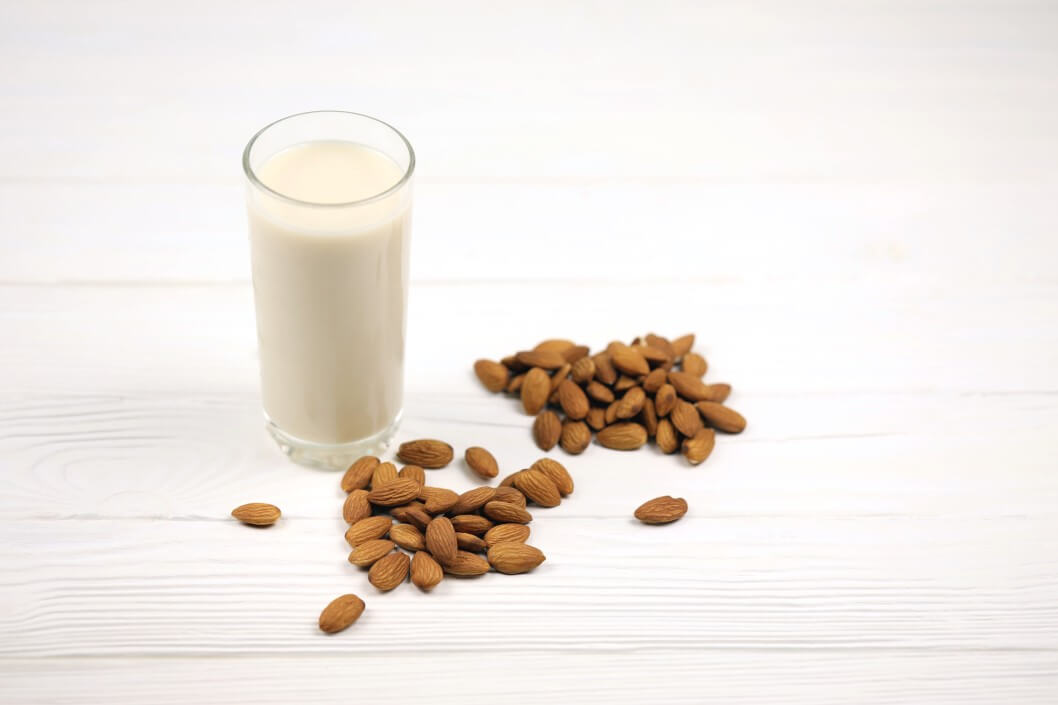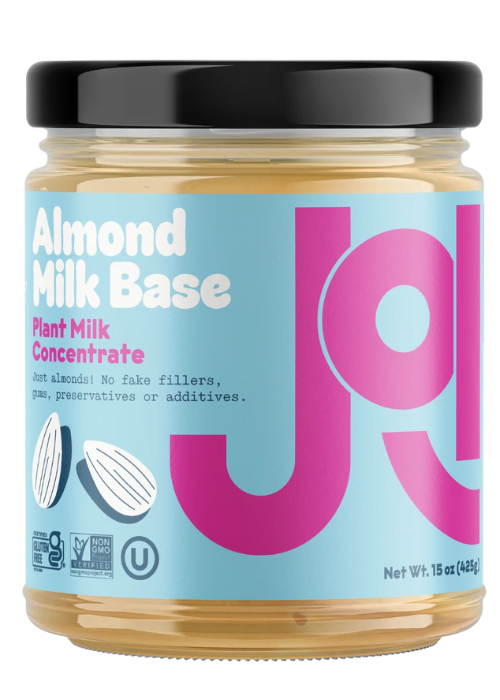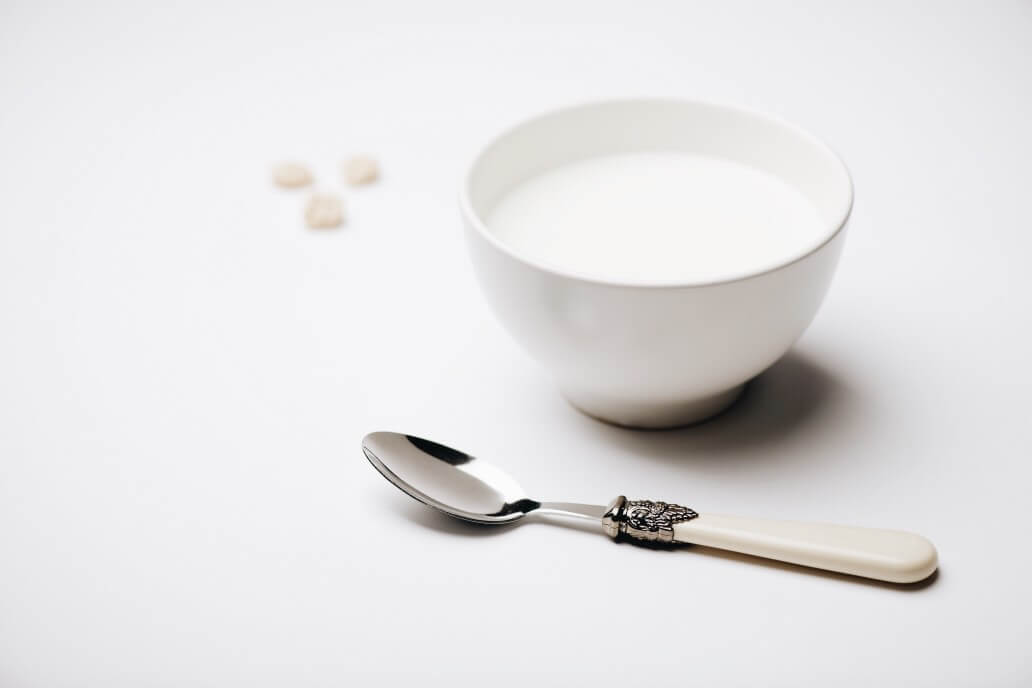It’s odd to imagine that milk could be such a controversial topic, yet here we are. You could add 10 dietitians and nutritionists whether or not milk is bad for you, and you might get 10 different responses.
The reality is it's difficult to give a straight yes or no answer to whether or not milk is bad for you.
There are a whole host of different milks available on the market, each with their own unique nutritional profile and the pros and cons that come with that.
In the rest of this article, we are going to look at some of the most popular types of milk available, along with reasons that might make you want to include them in or exclude them from your diet.
Is Milk Bad For You?
As mentioned above, whether milk is bad for you is a pretty broad topic that needs to be broken down into what type of milk you're drinking and what your dietary needs and expectations are from it.
For example, if you’re a bodybuilder or you like to go to the gym, cow’s milk can be a great part of your diet because its high fat content can give you the energy you need to lead your lifestyle.
Conversely, if you’re a vegan couch potato, this might not be the milk for you.
However, this doesn’t mean that cow’s milk is necessarily bad. It just depends on whether it suits you or not.
Similarly, with the vast variety of plant-based milks on the market today, some might be good for some people and not for others.

Is Cow’s Milk Bad For You?
Dairy milk is probably the first milk that pops into a lot of people’s heads when they think of milk.
Cow milk has been part of the human diet for at least 6,000 years, and although the practice has been controversial across cultures and time, it still persists.
In Western countries, dairy milk is particularly recommended for young children to aid in their growth because of its high calcium content.
Calcium has been traditionally touted as essential for developing bones, but recent research has found a correlation between milk consumption and hip fractures, so the jury’s out on whether or not cow’s milk is truly a magic elixir for strong bones.
Cow’s milk has a lot going for it in the health department though, including a very broad nutritional profile that covers multiple human needs in one go.
Some of the minerals most prominent in milk include:
- Calcium
- Potassium
- Sodium
Dairy milk is especially rich in vitamin D, but also has good proportions of vitamins A and C. Protein and fat levels vary based on the type.
These fat levels can also be a bad thing, depending on your needs and lifestyle. Cow’s milk is high in calories compared to other types of milk precisely because of this, making it a poor option if, for example, you are trying to lose weight. Dairy milk is also very high in saturated fats.
Cow's milk is arguably the most controversial when it comes to whether or not milk is bad for you. As a general rule of thumb, if you consume cow's milk and notice adverse health affects let your physician know. At Milk Pick, our preference is non-dairy milk 🙂
Is Soy Milk Bad For You?
Once considered the most popular alternative to dairy milk, soy milk has been a vegan staple for decades.
These two types of milk roughly match in protein content, which makes soy a popular substitute for people who want to keep the protein but cut a lot of the calories from the fat in cow’s milk.
1 Cup | Whole Milk | Soy Milk |
|---|---|---|
Calories | 149 | 80 |
Protein | 8g | 7g |
Fat | 8g | 4g |
Carbohydrates | 12g | 3g |
Fiber | 0g | 2g |
Sugar | 12g | 1g |
Additionally, because soy milk isn’t an animal product, it's completely devoid of cholesterol, which itself isn’t necessarily bad, but can lead to health problems if consumed too much.
Soy milk can be fortified with a variety of vitamins and minerals to match and even surpass the nutritional profile of dairy milk.
This makes it a good alternative for milk drinkers who want to go on a low-calorie diet but keep all of the benefits of dairy milk. It’s also great for vegans who can sometimes struggle to consume adequate amounts of these nutrients.
A lot of people will have problems, however, drinking soy milk since it's actually a very common allergen. In addition, soy is a phytoestrogen, which can have far-reaching consequences if it upsets a person’s hormonal balance.

Is Almond Milk Bad For You?
Unlike soy milk, which is relatively similar to dairy milk, almond milk has a very different nutritional profile, which comes with its own set of pros and cons.
1 Cup | Whole Milk | Almond Milk (Unsweetened) |
|---|---|---|
Calories | 149 | 39 |
Protein | 8g | 1g |
Fat | 8g | 3g |
Carbohydrates | 12g | 4g |
Fiber | 0g | 1g |
Sugar | 12g | 0g |
One of the main differences is that it's very low in protein, which leaves a very important part in the human diet unfilled.
Almond milk is also very low in calories, which is great if you are on a low-calorie diet but can create problems if you have an active lifestyle, are trying to build muscle, or just generally need a lot more energy for your daily activities.
What makes almond milk valuable, however, and one of its most useful features, is its very different nutritional profile. You can almost think of almond milk as a supplement, but completely natural.
Almond milk is rich in selenium, magnesium and vitamin E, and may have a wealth of other nutrients depending on what it's fortified with.
You may end up combining it with other types of milk to ensure your diet is as well balanced as possible. However, be aware that some store-bought almond milk may contain carrageenan, which can cause digestive problems for some.
JUST ONE INGREDIENT

Is Oat Milk Bad For You?
Oat milk is one of the more recent non-dairy milk alternatives. Oats themselves have an incredibly broad nutritional profile, and oat milk inherits much of this. This makes oat milk a nice cheat code for maintaining an overall balanced diet.
1 Cup | Whole Milk | Oat Milk |
|---|---|---|
Calories | 149 | 120 |
Protein | 8g | 3g |
Fat | 8g | 5g |
Carbohydrates | 12g | 16g |
Fiber | 0g | 2g |
Sugar | 12g | 7g |
Oat milk is relatively calorific compared to a lot of milk alternatives. This makes it a good part of your diet if you’re trying to keep energized.
If, on the other hand, you are trying to lose weight or just generally lead a mostly sedentary lifestyle, this can make oat milk not the best choice for your health.
Oat milk is also incredibly accessible. People with intolerance toward lactose will avoid dairy milk, and the array of allergies to nuts and soy place a lot of plant-based alternatives outside of the reach of the people who have them.
While oat allergy is a real thing, it’s not overly common, leaving oat milk as a largely safe option.
Although they vary based on the manufacturer, oat milks generally have high levels of dietary fiber. As this is not a nutrient frequently associated with milk of any kind, its presence in oat milk makes it great for filling in yet another dietary niche without expanding your diet further.

Is Coconut Milk Bad For You?
Coconut milk fills a very different niche to other plant-based milks. For starters coconut milk can have about quadruple the calories of full fat dairy milk! Similarly, it can have more than ten times the fat content.
1 Cup | Whole Milk | Coconut Milk (Raw Canned) |
|---|---|---|
Calories | 149 | 552 |
Protein | 8g | 5g |
Fat | 8g | 57g |
Carbohydrates | 12g | 13g |
Fiber | 0g | 5g |
Sugar | 12g | 3g |
If you can make up for its lower protein content elsewhere, coconut milk is amazing for athletes, bodybuilders and people with very active lifestyles due to its incredible energy density.
If you’re not very active or have struggled with weight gain, however, coconut milk should be best avoided as only four cups of it can surpass your calorie allowance for an entire day.
Very confusingly, there are different compositions of the drink that are labeled as coconut milk.
The more diluted variants will have significantly lower quantities of calories, fats and everything else, which might make them a more suitable substitute for how you would consume other types of milk. Always check the nutrition label to confirm before you buy.
While specific coconut allergies exist, if you suffer from general nut allergies, this won’t prevent you from enjoying coconut milk since coconuts are actually fruits, not nuts.
Like almond milk, coconut milk may contain carrageenan, which doesn’t sit well with everyone’s digestive system. It can also contain other preservatives and emulsifiers like guar gum. Our general rule of thumb is the fewer ingredients a non-dairy milk has, the better.
Is Rice Milk Bad For You?
Of all types of milk, rice milk is the most accessible due to rice allergies being exceptionally rare. If you generally prefer to avoid fat but want a milk that’s going to keep you energized, rice milk is rich in carbohydrates while containing minimal fat, filling that niche nicely.
1 Cup | Whole Milk | Rice Milk |
|---|---|---|
Calories | 149 | 115 |
Protein | 8g | 1g |
Fat | 8g | 2g |
Carbohydrates | 12g | 22g |
Fiber | 0g | 1g |
Sugar | 12g | 13g |
The natural nutritional profile of rice milk isn’t particularly broad, which is why it often comes fortified with the sorts of minerals and vitamins that you would expect from milk or milk substitutes.
Rice milk tends to be very sweet, which can make it a good replacement for less healthy desserts or sweet snacks that you might otherwise be consuming throughout the day.
The flip side to this is that it does contain a considerable amount of sugar, which can make it unsuitable for diabetics and people who want to cut sugar from their diet entirely.

Is Drinking Milk Bad For You?
So what's the takeaway from all this?
When trying to answer the question of is milk bad for you, you need to understand what your specific needs are and assess how the type of milk you're consuming does or doesn’t meet those.
Milk isn't inherently bad, it just depends on your goals, health condition, and preference.
Our source of nutrition facts for the milk products is the U.S. Department of Agriculture database, which can be found here:
